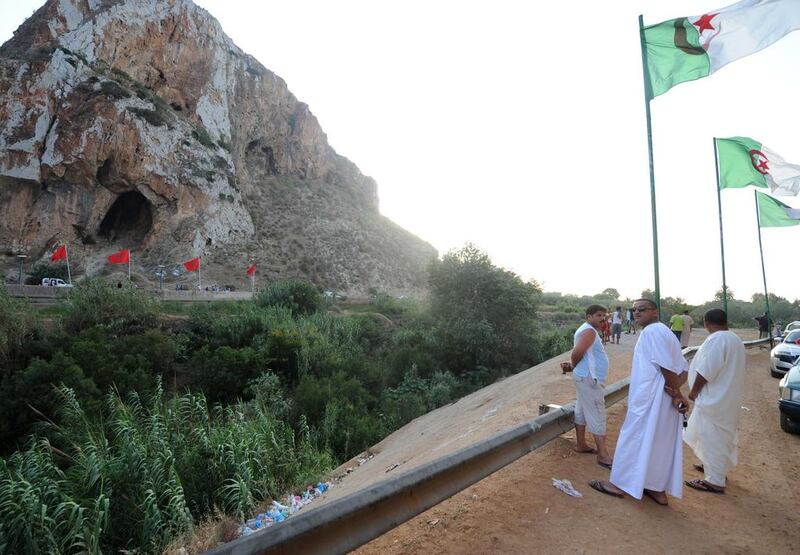In 1994, when the Armed Islamic Group attacked a hotel in Marrakech and killed two European tourists, the Algerian government sealed the borders with Morocco fearing a spread of extremism.
The border has remained closed ever since – and the attack itself remains an incident charged with allegations and counter-allegations by both countries – but the flow of smuggled goods and hashish in particular, has continued unabated.
According to a recent report by the UN Office on Drugs and Crime (UNODC), cannabis resin seizures have increased considerably in Algeria, rising from 53 tonnes trafficked from Morocco in 2011 to 157 tonnes in 2012. By the time that 127 tonnes were stopped in the first eight months of 2013, Algeria had had enough.
Irked by the huge quantities being intercepted, Algerian officials and media outlets pointed the finger at the Moroccan authorities in allowing the cannabis traffic to flourish.
In addition, Mohammed Safahi, vice-president of the Communal Council in the western province of Tlemcen, is reported to have addressed Morocco’s king, Mohammed VI, in these strident terms: “Your Majesty, you the so-called commander of the faithful, stop flooding Arab and Muslim nations, from Mauritania and Algeria to Tunisia and Egypt, with tonnes of hash which is planted and harvested in your kingdom.”
Morocco is believed to produce nearly half of the world’s hashish.
In the mountainous region of northern Morocco, where cannabis farming started centuries ago, it is claimed that at least 800,000 Moroccans depend on hashish for their primary source of revenue.
These workers cultivate some 30,000 hectares, which yield about 15,000 tonnes of cannabis annually and generate $10bn annual sales, according to the Moroccan Network for the Medicinal and Industrial Use of Cannabis, a local aid organisation. Before the Arab Spring, the Moroccan authorities waged a slash-and-burn campaign against cannabis farming. According to UNODC, this operation, which encouraged farmers to plant orchards and grow olives instead of drugs, dramatically cut the area of cannabis-planted farmland.
But as Morocco’s unemployment rate hovers around 30 per cent, prime minister Abdelilah Benkirane’s Islamist Justice and Development party as well as the opposition Authenticity and Modernity, are considering decriminalising the hashish industry. The logic for doing so would be that it would regulate the industry and allow the government to generate revenue from it.
In the meantime, Moroccan hashish is flooding into neighbouring countries.
The growing traffic in kif (herbal cannabis) is also taking its toll on millions of young men and women in the Maghreb.
The hashish route starts in the Rif Mountains and leads to Morocco’s eastern border with Algeria. Transit is facilitated by the payments of bribes to the many guards manning the roadblocks on both sides.
Algeria, with its vast and poorly-patrolled borders, has long been a major transit point. But the country has also lately become a major consumer of cannabis.
Some of the drugs are destined for sale on European markets, but huge quantities of Moroccan hashish transit through the Sahara where so-called narco-jihadists, who control a triangle of no-man’s land between northern Mali and Niger, eastern Mauritania, southern Algeria and Libya, smuggle the shipments to Europe.
There are mounting concerns regarding the links between Moroccan drug barons and narco-jihadists linked to Al Qaeda in the Islamic Maghreb and the Movement for Unity and Jihad in West Africa. Generally, when networks of crime are established almost anything – from drugs to extremists – will use those paths.
As a UN expert put it: “There is an explosive coalition between drug traffickers, jihadists and corrupt politicians in Africa. The future of that continent and the security of Europe are at risk.”
Dr Abdelkader Cheref is a professor at the State University of New York at Potsdam





